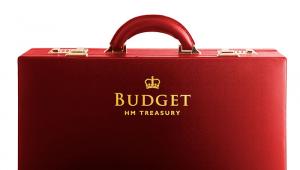The NHS will have to increase spending by an average of 3.3% a year for the next 15 years if it is to keep the same level of service until 2033-34, a report by the Institute for Fiscal Studies and charity the Health Foundation has said today.
To improve the health service a funding increase of 4% a year would be needed – an increase of £124bn in spending in today’s prices, the report, carried out in association with the umbrella-body the NHS Confederation, concluded.
Funding “increases in health spending through the tax system would require taxes to rise by between 1.6% and 2.6% of GDP – that’s between £34bn and £56bn in present-day terms, equivalent to between £1,200 and £2,000 per household,” the report said.
Such a big rise would “of course need to be phased in gradually over the next 15 years”, it recommended.
Anita Charlesworth, director of research and economics at the Health Foundation and author of the report, said: “After eight years of austerity, the health service will need a sustained injection of funding just to get back on an even keel, let alone modernise.”
Researchers looked at detailed forecasts to calculate health and care spending needs in the UK in the future, considering the growing older population, the numbers of people with chronic health problems and what drugs bills are likely to be over the next 15 years.
Adult social care funding in the UK is likely to have risen by 3.9% over the next 15 years, taking an extra 0.4% of national income, relative to today, the report also noted.
Paul Johnson, director of the IFS and another author of the report, said: “We are finally coming face to face with one of the biggest choices in a generation.
“If we are to have a health and social care system which meets our needs and aspirations, we will have to pay a lot more for it over the next 15 years.”
Niall Dickson, chief executive of the NHS Confederation, called the findings “a wake-up call” and added that without sustained investment “we will face a decade of misery in which the old, the sick and the vulnerable will be let down”.
The report added it was “hard to imagine” that health and social care provision could be maintained at current levels without increases in at least one of the three biggest taxes - income tax, national insurance and VAT.
Separately, two former ministers and the Institute for Public Policy Research think-tank today urged the government to raise national insurance contributions by 1p in the pound from 2019 to allow the NHS and social care demand in this parliament to be met.
This measure would deliver more than £350m per week extra for the NHS by 2022 [when the UK’s transition out of the EU is expected to be completed] compared to 2016 [the year of the Brexit referendum], according to former Labour health minister Lord Darzi and former Tory health minister Lord Prior.
The pair are working with the IPPR on a report looking at the quality of health and care services in the NHS for the organisation’s 70th birthday this year.
Prior called on the government to end the “feast and famine cycle of NHS funding” and said the call for raised national insurance contributions would “provide the NHS with the long-term funding settlement that it needs to be fit for the 2020s.”
Darzi said: “We can secure the NHS and social care for the future by asking everyone to contribute a little more in national insurance—it is a small price to pay for a more civilised and caring society.”
Comments on the IFS report:
“If the NHS is to celebrate its 100th birthday, then it’s imperative that adult social care is not only given parity with the health service, but seen as a vital service in its own right and fully funded to future-proof it for the rising numbers of people who need care.”
Izzi Seccombe, chair of the Local Government Association’s community wellbeing board
“As we continue to have separate health and care services we must invest in both, not least to speed up the process of joining them together.”
Saffron Cordery, deputy chief executive of NHS Providers
“If the government wants more money for the NHS, it should demand an end to wasteful spending practices and call for new technologies to be embraced. The NHS is less innovation-friendly than most other developed nations’ healthcare systems, and taxpayers and patients suffer because of it.”











